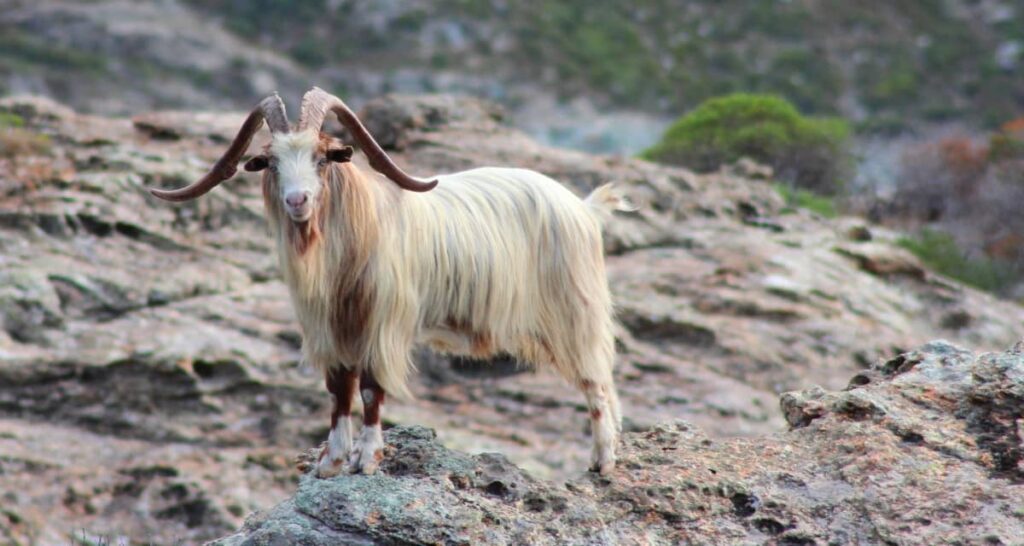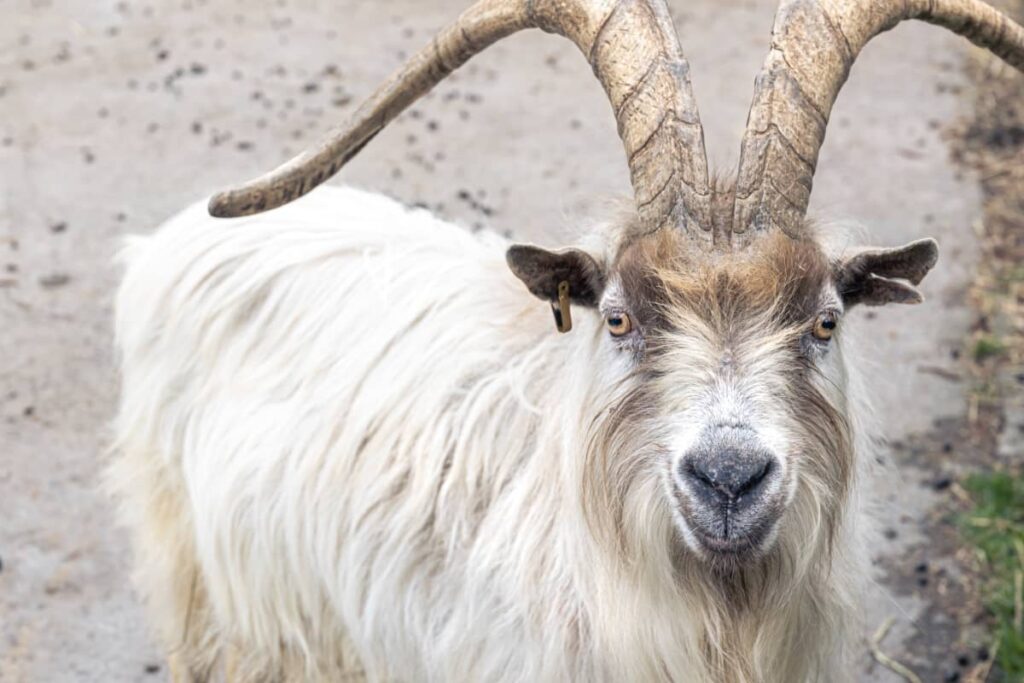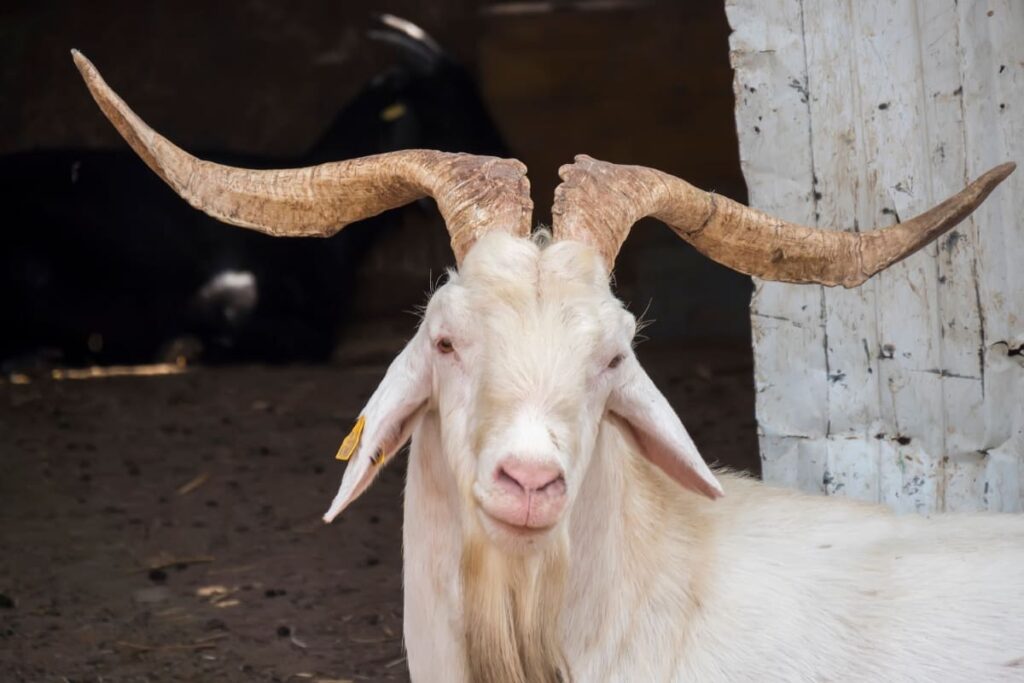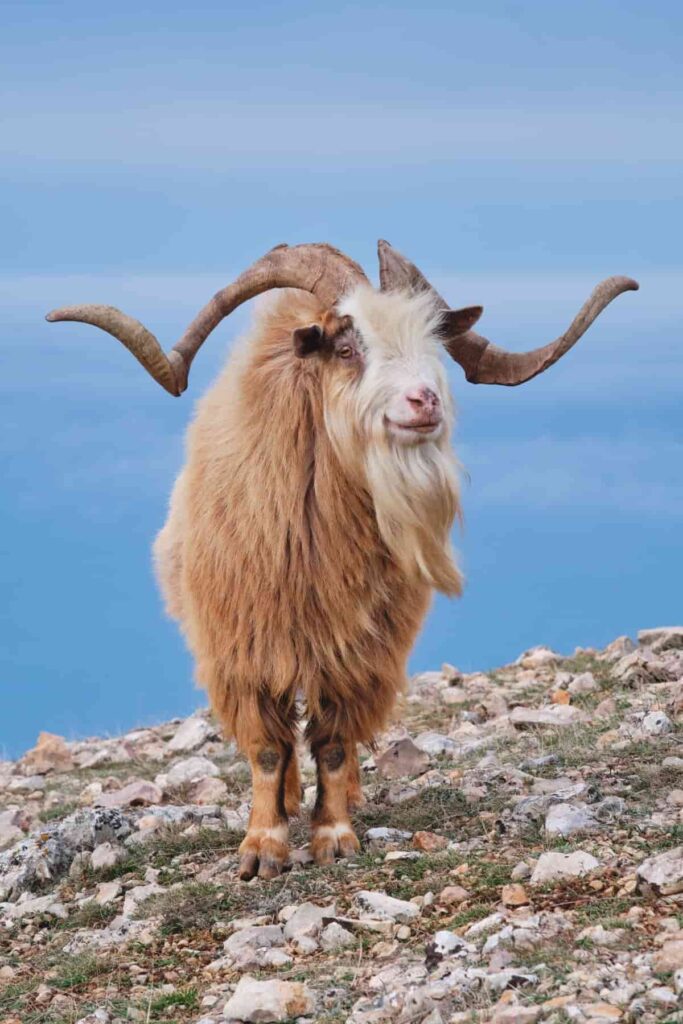The Asmari is a large breed of goat originating in the Kunar province of Afghanistan. They are a general-purpose breed and are used as pack animals and raised for their meat and milk. Raising Asmari goats can bring numerous benefits to farmers and homesteaders alike. These remarkable animals offer a range of advantages that make them a valuable addition to any livestock operation.

All You Need to Know About Asmari Goat
Physical Characteristics of Asmari Goat
The Asmari goat is known for its versatility. It serves as an excellent pack animal, capable of carrying heavy loads over rugged terrain. This makes it ideal for transporting goods in remote areas where other means of transportation may be limited. The Asmari goat provides both meat and milk. Furthermore, these goats are relatively low maintenance compared to other livestock options. They are hardy animals that can adapt well to different climates and grazing conditions.
Their resilience allows them to thrive even in harsh environments with limited resources. Moreover, raising Asmari goats offers potential economic opportunities. The demand for their meat and milk continues to grow globally, creating a market for farmers to sell their products at competitive prices. This presents a profitable venture for those looking to generate income from their agricultural endeavors.
Origin and History of Asmari Goat
The Asmari goat, with its distinctive characteristics and versatility, has a fascinating origin rooted in the Kunar province of Afghanistan. This breed has been around for centuries, evolving to thrive in the rugged mountainous terrain. Although precise details about their exact origins are scarce, it is believed that local communities have bred the Asmari goats for generations. They were primarily developed as pack animals due to their strength and endurance.
Over time, these goats became an essential part of agricultural practices in the region. They carry heavy loads and navigate difficult terrains, making them indispensable companions for farmers and shepherds alike. Asmari goats also gained popularity for their high-quality meat and milk production. Locals recognized their potential early on and started selectively breeding them to enhance these traits further.
Behavioral Traits of Asmari Goats
Asmari goats are known for their resilient and independent nature. They have a strong instinct to explore and can adapt well to various climates and terrains. These goats are highly social animals, often forming tight-knit herds that provide them with a sense of security. The main behavioral trait of the Asmari goat is their intelligence. They can solve problems and learn quickly, making it easy to train them for specific tasks. This makes them ideal pack animals, as they can navigate challenging trails with ease.
In case you missed it: Gestation Period of Goats in India: Calendar and Calculator

While generally docile, Asmari goats can display territorial behavior when it comes to protecting their young or resources such as food and water. Their instincts make them excellent guardians against potential predators, ensuring the safety of other livestock on the farm. Additionally, these goats have a curious disposition, which drives them to explore their surroundings. This curiosity also extends to their diet preferences; they will sample various plants and shrubs in search of new flavors.
Average Size of Asmari Goat Breed
These goats have a robust build, making them suitable for various purposes such as pack animals, meat production, and milk yield. In terms of size, male Asmari goats typically weigh between 50 and 90 kg, while females range from 45 to 60 kg. This weight difference is common among many goat breeds, where males tend to be larger than females. Additionally, male Asmari goats stand at around 70 cm tall, while females are approximately 53 cm in height.
The average size of the Asmari breed makes them well-suited for different agricultural activities. Their strength and stature enable them to carry heavy loads over long distances as pack animals. Furthermore, their size allows for efficient meat production as they have a good muscle-to-bone ratio. When it comes to milk production capabilities, the larger size of the female Asmari goats can contribute to higher yields compared to smaller breeds. This aspect should be considered if you are interested in dairy farming or utilizing their milk for personal consumption.
Average Lifespan of Asmari Goat
The average lifespan of the Asmari Goat is an important aspect to consider when raising these animals. With proper management, they can live for a decent amount of time, providing value and companionship to their owners. These goats have been known to live anywhere from 10 to 15 years on average. However, it’s worth noting that individual lifespans can change based on factors such as genetics, diet, environment, and overall health.
Average Price of Asmari Goat
Asmari goats are not only known for their beauty but also their affordability. The average price of an Asmari goat can change based on factors such as age, gender, and overall quality. Generally, the price of an Asmari goat is anywhere from $150 to $500 per goat.
Breeding and Reproduction
It plays a major role in maintaining the population and genetic diversity of any animal breed, including the Asmari goats. Breeding practices aim to ensure healthy offspring with desirable traits for meat and milk production. When it comes to breeding Asmari goats, the selection of superior bucks and does is key. It’s important to choose animals that exhibit good conformation, strong genetics, and overall health.
Successful breeding can result in improved productivity within the herd. Reproduction in Asmari goats typically occurs naturally through mating between a buck and a doe. The gestation period lasts around 150 days, after which a female goat gives birth to one or two kids. Adequate care must be provided during pregnancy to ensure proper development of the fetus.
To maximize breeding efficiency, farmers often employ controlled breeding methods such as artificial insemination (AI) or embryo transfer (ET). These techniques allow for precise genetic selection and increased reproductive success rates. Regular monitoring of health is essential for successful breeding programs. This includes observing heat cycles, managing nutrition appropriately, providing necessary vaccinations, deworming treatments if required, and ensuring proper hygiene in birthing areas.
Raising Asmari Goats for Profit
The demand for Asmari goat meat is steadily increasing in various markets. Their tender and flavorful meat has gained popularity due to its unique taste, making it highly sought after by consumers. By raising Asmari goats, you can tap into this growing market and secure a profitable source of income. In addition to their meat, Asmari goats also produce high-quality milk. This creamy liquid is not only delicious but also packed with essential nutrients.
By offering fresh Asmari goat milk, you can cater to this niche market and maximize your profit potential. Furthermore, these goats are hardy animals that require minimal care compared to other livestock options. In addition, they are known for their resilience against diseases and parasites, reducing the need for frequent veterinary interventions.
In case you missed it: Goat Farming Business 101: Exploring Basics of Goat Farm Business

Asmari goats exhibit excellent fertility rates. The does typically give birth once or twice a year, resulting in a steady supply of new kids on your farm. With proper management practices in place, you can optimize the breeding process and ensure a continuous production cycle that maximizes profits.
Nutritional Requirements and Feeding Habits
A well-balanced diet consisting of fresh water, high-quality forage, and a mix of grains or concentrates is crucial. These goats are known to be adaptable grazers, capable of consuming a different variety of plants and shrubs. Feeding habits may vary depending on factors such as age, reproductive stage, and the availability of grazing land.
For instance, lactating does require additional nutrients to support milk production. It’s important to provide them with adequate protein-rich feed during this time. Supplementing their diet with minerals is also essential for overall health. Providing proper nutrition plays a vital role in ensuring the health and productivity of Asmari goats.
Economic Significance in Agriculture
The Asmari Goat breed holds significant economic value in the field of agriculture. These goats are known for their high productivity and versatility, making them a valuable asset to farmers and livestock owners. The meat produced by Asmari Goats is highly sought after due to its quality and taste. This demand creates opportunities for goat farmers to sell their produce at premium prices, thereby generating income.
Asmari Goats also provide a reliable source of milk production. Many dairy businesses rely on these goats to supply them with fresh milk that can be processed into several dairy products. Additionally, these goats have excellent reproductive capabilities, which further contributes to their economic significance. Moreover, the use of Asmari Goats as pack animals adds another dimension of economic importance in agriculture.
In case you missed it: Utilizing Goats for Weed Control in Pastures and Woodlands

Conclusion
The Asmari goat is a magnificent breed that has captured the hearts of farmers and enthusiasts alike. These remarkable animals are not just your average goats; they are versatile creatures with multiple purposes. Asmari goats have proven their strength and endurance over time. In addition to their pack animal capabilities, they are also highly valued for their meat and milk production.
Note: The images presented in this post are intended solely for representation purposes. The images are meant to serve as visual aids and should not be relied upon as accurate representations of their real-life counterparts.
- Types of Grass Growing for Goat Farm
- How to Train Goats for Milking: A Beginners Guide
- Goat Milking Practices and Equipment: A Beginner’s Guide
- Goat Farming for Fiber: Producing Mohair and Cashmere
- Maximizing Goat Milk Production: Tips for Dairy Goat Farmers
- Goat Farming as a Family Business: Strategies for Success
- Profitable Kenya Goat Breeds for Commercial Dairy and Meat Business
- Unlock the Secrets of Oberhasli Goat: Discover Raising and Management Practices
- Ultimate Guide to Myotonic Goats: Explore Profile to Raising